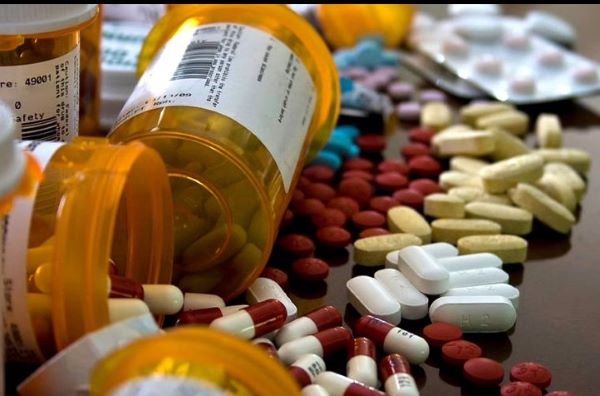To help build a strong and independent pharmaceutical industry in Nigeria, an organization called Resolve to Save Lives worked with the Federal Ministry of Health and Social Welfare and the Presidential Initiative on Unlocking the Healthcare Value Chain (PVAC) to organize a three-day training on Good Manufacturing Practices (GMP). This training focused on making high-quality heart medicines.
The training was held at the Colossus Hotel in Ikeja, Lagos. It was a partnership between the government and private companies, aimed at improving how medicines are made in Nigeria.
Groups like Quamed, the Pharmaceutical Society of Nigeria (PSN) Foundation, and the Pharmaceutical Manufacturing Group of the Manufacturers Association of Nigeria (PMG-MAN) helped organize the event. The main goal was to help Nigerian drug companies meet global standards for quality.
This training supports Nigeria’s goal of making more medicines locally, reducing the need for imports, and ensuring that people can get safe and affordable medicines—especially for diseases like heart conditions.
Fatima Gawuna from PVAC said the training came at the right time and was very important for improving healthcare in Nigeria. She highlighted that strong quality control and good lab practices are essential to make medicines that meet both Nigerian and international rules.
She said, “This training is a big step for Nigeria’s healthcare. By teaching local manufacturers how to meet international standards, we are helping patients with heart disease and building trust in Nigerian-made medicines. This also supports PVAC’s mission to boost local production and improve access to treatment.”
Gawuna also pointed out that Nigeria still imports over 70% of its medicines. She said supporting local drug makers is no longer a choice—it’s a necessity. “By helping them, we can lower drug costs, create jobs, and make Nigeria a key player in Africa’s medicine market,” she added.
The training was both technical and strategic. It covered topics like quality control, meeting regulations, lab best practices, and steps manufacturers need to take to improve and get certified. It focused on heart medicines, which are important for managing heart disease—a leading cause of death in Nigeria and around the world.
Dr. Kufor Osi from *Resolve to Save Lives* explained why this training is so urgent. He said, “High blood pressure is the top cause of death worldwide. In Nigeria, about 30 million adults—1 in every 3—have it, but only 12% of them have it under control.”
This means 88% of people with high blood pressure in Nigeria are either not diagnosed, not properly treated, or don’t have regular access to care and medicine. Dr. Osi said that while progress has been made since 2020, many people still struggle to afford or find quality medicines.
“We’ve set up treatment programs at primary health centers nationwide, but getting medicine is still hard. Some drugs are too expensive, and some are poor quality,” he said. “This training helps solve that by improving the quality of heart drugs made in Nigeria.”
He said the long-term goal is to have a local, reliable, and affordable supply of heart medicine that meets international standards. “Better local production means lower costs, better treatment, and more lives saved,” he said.
Dr. Osi also gave advice to Nigerians living with high blood pressure. He encouraged them to check their blood pressure regularly because the condition often has no symptoms.
“High blood pressure is called the ‘silent killer’ because it doesn’t show signs until it’s serious. You may feel fine but still be at risk,” he warned. He urged people to visit clinics, take their medicine, and live healthier lives by eating less salt, exercising, quitting smoking, and drinking less alcohol.
Mrs. Talatu Yahaya Kassim, from the Federal Ministry of Health, spoke about the need for government policies to help local drug makers. She said the government is giving support to make sure Nigerian medicines are safe and effective.
She said, “Quality is key if we want everyone in Nigeria to get the care they need. This kind of partnership shows that with the right support and shared knowledge, Nigeria can produce good medicines at a large scale.”
She also mentioned that the government is offering incentives like waivers for importing raw drug ingredients to help local companies grow. “We want to cut down on imports and help Nigerian companies make enough medicines for the country and even for export,” she said.
Munir Elelu from the PSN Foundation said everyone—whether individuals or organizations—has a role to play in improving healthcare. He stressed that every drug made in Nigeria must meet the highest quality standards to protect public health.
Elelu reminded everyone that good healthcare starts with good medicine. “If we don’t have quality drugs, we don’t have a working healthcare system. Poorly made drugs are dangerous. That’s why this training is so important—we’re building the foundation for better health.”
He praised the focus on heart medicines, saying that non-communicable diseases like heart disease are becoming Nigeria’s biggest health problem. “Better quality heart medicine means better lives. We fully support this effort. A healthy country is a wealthy country,” he added.
Over the three days, the training brought together drug makers, regulators, government officials, and experts. They took part in interactive sessions, case studies, and workshops. The training covered real-world issues like record-keeping, cleanrooms, testing, handling problems, and checking medicines after they’re sold—all based on global standards but made to fit Nigeria’s situation.
The event also helped build partnerships between the public and private sectors to make sure Nigeria has safe and reliable medicines now and in the future.
At the end of the training, there was a strong sense of commitment. Everyone agreed to keep working together, building skills, and creating a strong supply of trusted heart medicines.
This major initiative is a big move toward Nigeria producing its own medicines. It shows that the country is serious about improving healthcare. With teamwork, smart policies, and the right training, Nigeria can make affordable, high-quality medicines for everyone.


